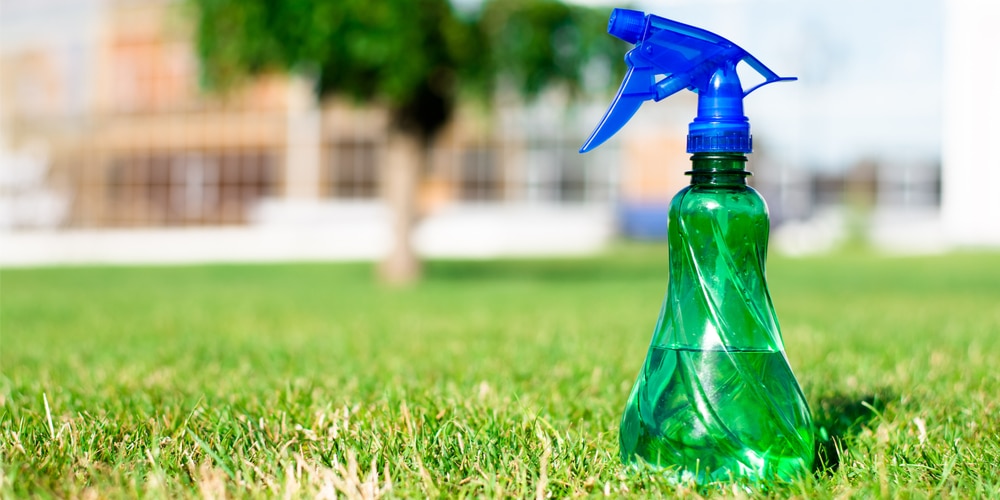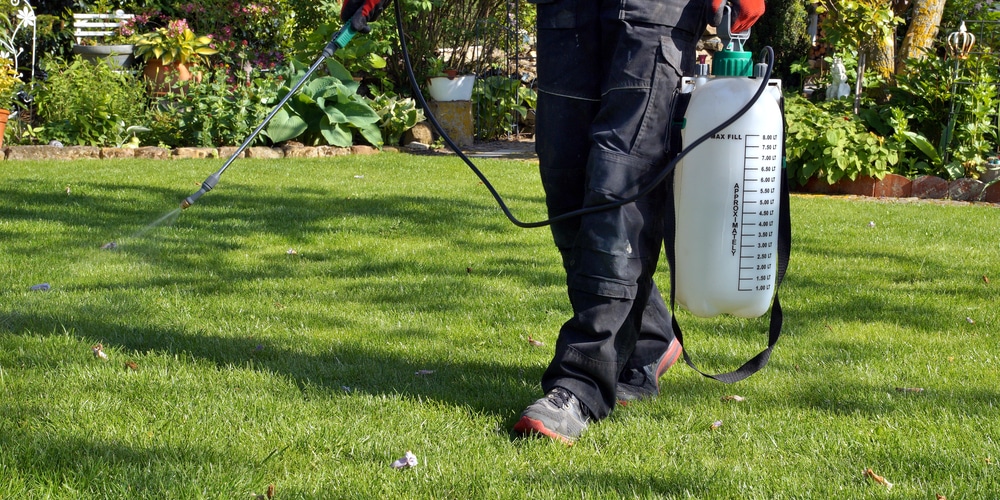Those of us who have accidentally sprayed plants with vinegar, know it can be a frustrating experience. Vinegar is an acidic substance that can damage plants, especially if it’s concentrated, so it’s important to take care when using it around your garden.
In this article, we’ll show you how to neutralize the acidity of the vinegar and save your plants.
Why Vinegar Is Bad for Your Plants
Vinegar is often touted as a natural and environmentally-friendly weed killer. However, vinegar is bad for your plants.
Vinegar is a dilute form of acetic acid, which can damage plant leaves and roots. Prolonged exposure to vinegar can even kill plants.
In addition, vinegar can increase the acidity of the soil, making it difficult for plants to absorb nutrients. It can also make the soil more susceptible to erosion.
What To Do if You Accidentally Sprayed a Plant With Vinegar
Vinegar is a great cleaner, but it’s not so good for plants. If you accidentally sprayed a plant with vinegar, there are a few things you can do to save it.
Dilute the Acidity
Rinse the plant off with clean warm water. This will help to dilute the vinegar and remove any residue that may be left on the leaves and stem.
Be sure not to drown your plant in water, only use as much as necessary for your plant size. Be gentle when pouring the water onto your pour so the weight of the water does not crush your plant.
Use Baking soda
Baking soda is a common household ingredient with a variety of uses, including baking, cleaning, and deodorizing. It’s also a handy tool for gardeners and can be used to improve plant health in several ways.
Baking soda will help to neutralize the acidity of vinegar on your plants. Mix it in with water to create a water and baking soda solution. Baking soda can also be used to get rid of ants.
Vinegar will make your plant vulnerable to more areas of danger such as pests and diseases. Baking soda can help to deter pests, such as slugs and snails, and can also be used to kill fungal infections, such as powdery mildew.
Additionally, baking soda can help to boost plant growth by increasing the availability of essential nutrients, such as nitrogen and phosphorus.
Apply Mulch and Compost To Surrounding Area
Then, apply a layer of mulch or compost around the base of the plant to help protect the roots.
Mulch also helps to suppress weeds and can provide nutrients for your plants. Compost is an excellent source of nutrients and can help improve the texture of your soil. It also helps to regulate moisture levels and can increase the population of beneficial microorganisms in your soil.
Pay Attention
Give the plant extra attention and care over the next few weeks because not all plants can be saved once exposed to vinegar. Be sure to water the plant regularly and keep the soil moist.
You should also fertilize your plant to provide any nutrients the vinegar might have stripped away. Some fertilizers have a higher concentration of nutrients than others, making them more effective at promoting plant growth. Generally, organic fertilizers are the most nutrient-rich as they have natural materials such as compost or manure.
Vinegar strips away layers of protection on the plant, making the plant more susceptible to burning and disease. For the time being, if your plant is mobile, you may want to remove it from direct sunlight. This action is necessary until you notice your plant has a full recovery and becomes healthy again.
With some effort, you may be able to nurse your plant back to health.

